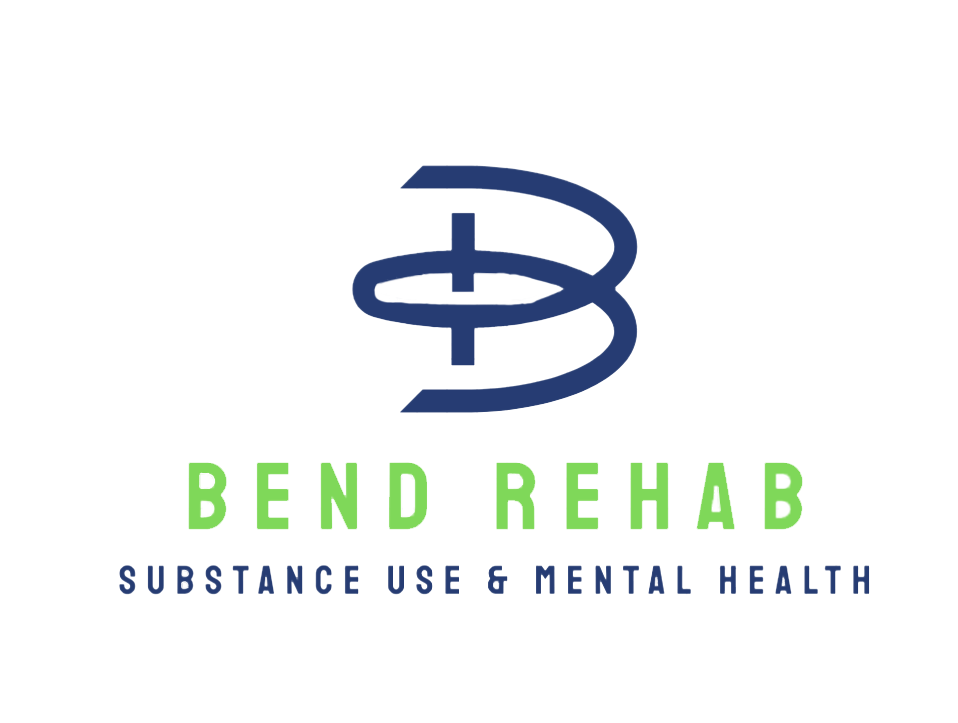Outpatient Rehab in Bend Oregon
Addiction treatment doesn’t always require moving into a residential facility for weeks or months. For many individuals, outpatient rehab in Bend Oregon provides a flexible and effective path to recovery that aligns with the realities of everyday life, such as work, school, or family responsibilities. This treatment option allows people to receive professional care while continuing to live at home, offering the support they need without disrupting their daily routines. If you or a loved one is navigating the challenges of addiction, understanding outpatient rehab is the vital first step toward making an informed decision. This blog explores what outpatient rehab entails, its unique benefits, and how it compares to inpatient programs. We’ll also discuss who might be a good fit for outpatient treatment, what to expect during the process, and how to choose the right program tailored to your situation. Recovery is a journey, and the right resources can make all the difference.
What Is Outpatient Rehab in Bend Oregon?
Outpatient rehab is a type of addiction treatment that allows individuals to live at home while attending therapy and support sessions at a designated treatment facility. Unlike inpatient rehab, which requires full-time residency, outpatient programs enable participants to maintain their daily responsibilities, like work, school, or family commitments. This option is especially well-suited for individuals who have a supportive home environment and don’t require the 24/7 supervision that inpatient facilities provide. Outpatient rehab in Bend, Oregon, is designed to offer both structure and flexibility, making it an appealing choice for many on their recovery journey.
The Benefits of Outpatient Rehab
Choosing outpatient rehab offers a range of benefits that cater to various aspects of recovery, making it a flexible and effective option. Unlike inpatient programs, outpatient rehab allows individuals to maintain their daily routines, such as work, school, or family responsibilities, while still receiving the support and care they need. This approach not only promotes a sense of independence but also helps individuals apply recovery strategies in real-world settings. Here’s why it could be the right choice:
1. Flexibility to Maintain Your Routine
Outpatient programs provide flexibility for individuals seeking treatment while maintaining their daily responsibilities. These programs are designed to allow participants to continue working, attending school, or caring for family members without interruption. Sessions are scheduled at convenient times, often in the evenings or weekends, ensuring minimal disruption to personal and professional commitments. This structure makes outpatient programs an ideal choice for those who need support but also want to stay engaged in their everyday routines.
2. Affordability
Outpatient care generally costs less than inpatient programs because you don’t have to cover expenses like room and board. This cost-effectiveness can make quality treatment more accessible for individuals and families who may be managing tight budgets. Despite the lower cost, outpatient programs maintain high standards of care, offering flexible schedules and allowing patients to continue their daily responsibilities, such as work or school, while receiving the support they need for recovery.
3. Family and Community Support
Living at home means staying connected to your loved ones, which can be a vital part of the recovery process. Outpatient rehab not only allows you to continue your daily routines but also provides the opportunity to engage in family counseling sessions. These sessions are designed to help every family member better understand addiction, improve communication, and learn how to create a supportive environment for long-term recovery. By involving loved ones in the healing process, outpatient rehab fosters stronger relationships and a foundation for lasting success.
4. Real-World Application
Because you remain in your home environment, outpatient rehab allows you to apply the relapse prevention strategies you learn in therapy immediately to real-life situations. This hands-on approach not only helps you practice these techniques in a familiar setting but also reinforces your ability to identify and resist potential triggers as they arise. Over time, this process builds resilience, strengthens coping mechanisms, and boosts your confidence in maintaining long-term sobriety, even in challenging moments.
5. Smooth Transition to Independence
For those transitioning from inpatient care, outpatient rehab serves as a crucial bridge to independent sober living. This form of treatment allows individuals to continue receiving professional support and guidance while gradually integrating back into their daily routines. It helps maintain continuity in their recovery journey, offering therapy, counseling, and coping strategies, all while encouraging greater self-reliance and accountability. Outpatient rehab provides a structured yet flexible approach, empowering individuals to rebuild their lives while staying committed to long-term sobriety.
What to Expect in Outpatient Rehab
Outpatient rehab programs in Bend, Oregon, come in many forms, offering a range of services to support individuals on their recovery journey. While the specifics may vary between programs, most include a combination of evidence-based therapies, counseling sessions, and access to resources tailored to meet individual needs. These programs are designed to provide flexibility, allowing participants to continue with their daily responsibilities, such as work or family commitments, while receiving treatment. Here’s what you can generally expect from these programs:
Individual Therapy Sessions
Therapists work one-on-one with patients to address the root causes of addiction, exploring underlying issues such as trauma, stress, or mental health conditions. They help patients process complex emotions, identify triggers, and develop healthy coping mechanisms tailored to their individual needs. Through supportive and personalized guidance, therapists empower patients to build resilience and work toward long-term recovery.
Group Therapy or Support Groups
Group therapy fosters a sense of community and shared understanding, offering individuals the chance to connect with others facing similar challenges. It provides a safe space to share experiences, gain insights, and build coping strategies together. Many programs also incorporate support groups like Alcoholics Anonymous (AA) or Narcotics Anonymous (NA) into their approach. These groups follow structured, peer-led frameworks that emphasize accountability, mutual support, and long-term recovery, creating an additional layer of encouragement and guidance for participants.

Educational Workshops
Outpatient rehab often includes a variety of workshops designed to support recovery and personal growth. These workshops typically cover topics such as addiction education, helping individuals better understand the nature of substance use disorders and their impact. They also focus on relapse prevention strategies, equipping participants with tools to recognize and avoid triggers. Additionally, life skills training is a key component, offering guidance in areas like stress management, effective communication, and problem-solving techniques to help individuals navigate everyday challenges and build a healthier, more stable lifestyle.
Medication Management
If part of your recovery plan involves medication-assisted treatment, outpatient programs provide invaluable support by giving you access to experienced medical professionals. These specialists carefully monitor your progress, ensuring your treatment plan evolves alongside your recovery. They adjust medication dosages as needed and manage prescriptions to make sure they align with your unique needs, prioritizing both your safety and your overall well-being. By addressing withdrawal symptoms and reducing cravings, medication-assisted treatment helps create a stable foundation for your recovery. Additionally, these professionals work closely with you to provide guidance, encouragement, and the resources needed to navigate challenges, ultimately promoting long-term success and helping you regain control over your life.
Holistic Therapies
Many outpatient facilities in Bend offer holistic options like mindfulness training, yoga, or art therapy, which can complement traditional treatments. These services are designed to address not just physical health but also mental and emotional well-being, providing a more well-rounded approach to recovery. Mindfulness training can help individuals manage stress and focus on the present, yoga supports physical and mental balance, and art therapy offers a creative outlet for self-expression and healing. Together, these options create a supportive environment for individuals seeking comprehensive care.
How Outpatient Rehab Differs from Inpatient Rehab
Understanding the differences between outpatient and inpatient rehab is crucial when determining the best option for your recovery journey or that of a loved one. While both programs aim to support individuals in overcoming addiction or managing health challenges, they differ in structure, intensity, and level of care. Here are some key distinctions to help you make an informed decision:
Time Commitment
Outpatient rehab requires fewer hours of treatment per week than inpatient care, making it a more flexible option for individuals who need to maintain their daily schedules. It allows patients to receive therapy and support while continuing to work, attend school, or care for their families. This type of program is ideal for those with a stable home environment and a strong support system, as it provides the necessary care without completely disrupting their daily lives.
Level of Support and Supervision
Inpatient programs offer round-the-clock support and supervision, providing a structured environment where individuals can focus solely on their recovery without outside distractions. This level of care is often beneficial for those requiring intensive treatment or who may struggle with triggers in their home environment. On the other hand, outpatient programs give participants greater autonomy, allowing them to continue their daily responsibilities like work, school, or family commitments while practicing self-management skills in real-world settings. This flexibility can be an advantage for some but may also pose challenges for those needing more consistent oversight and support. The best choice depends on individual needs, circumstances, and the level of care required.
Setting and Environment
Inpatient rehab involves staying full-time in a specialized facility where individuals receive around-the-clock care and a structured environment designed to support recovery. This option is often ideal for those who need intensive treatment or a break from their everyday surroundings to focus fully on their health. On the other hand, outpatient rehab allows individuals to continue living at home while attending scheduled treatment sessions. This flexibility enables them to maintain responsibilities like work, school, or caregiving while still receiving professional support. Local outpatient options are especially appealing for those with strong family or peer support networks, as these connections can provide additional motivation and encouragement throughout the recovery process.
Choosing an Outpatient Rehab Program in Bend, Oregon
Selecting the right outpatient rehab is crucial to a successful recovery. Here are a few tips to guide your decision-making process:
- Reputation and Accreditation: Check if the facility is accredited by reputable organizations like the Joint Commission or CARF.
- Therapeutic Approaches: Look into the types of therapy offered—does the program provide evidence-based treatments, holistic options, or a mix?
- Qualified Staff: Ensure the program is staffed with licensed therapists, medical professionals, and addiction specialists.
- Tailored Care Plans: A good program will assess individual needs to create a personalized treatment plan.
- Aftercare Services: Solid aftercare plans are a sign of a quality program—this helps sustain recovery long after treatment ends.
Facilities in Bend offer the added advantage of a community-focused atmosphere, a peaceful natural backdrop, and access to outdoor activities, creating an enriching environment for recovery.
Conclusion
Outpatient rehab in Bend, Oregon, combines professional expertise with the flexibility of real-world practice, making it an effective and adaptable option for many individuals. This type of treatment is ideal for those who need structured support to overcome addiction but also want to maintain their daily responsibilities, such as work, school, or family obligations. With outpatient care, individuals can attend therapy sessions, counseling, and group meetings while continuing to live at home, allowing them to apply their recovery skills in real-life situations immediately. Whether you’re someone battling addiction or a loved one seeking help, outpatient rehab offers a balance of accountability and independence, providing the tools necessary for a successful recovery journey. Bend, Oregon, is home to several reputable facilities equipped with experienced professionals who are dedicated to helping individuals reclaim their lives. These programs often include evidence-based therapies, personalized treatment plans, and ongoing support to address both the physical and emotional aspects of addiction. If you or someone you know could benefit from outpatient care, start by reaching out to us by calling 1 (541) 802-7214 or clicking Bend Rehab. Remember, taking the first step toward recovery often begins with asking for help. The right program can create the foundation for a new chapter of life—one defined by stability, health, and a renewed sense of purpose.




